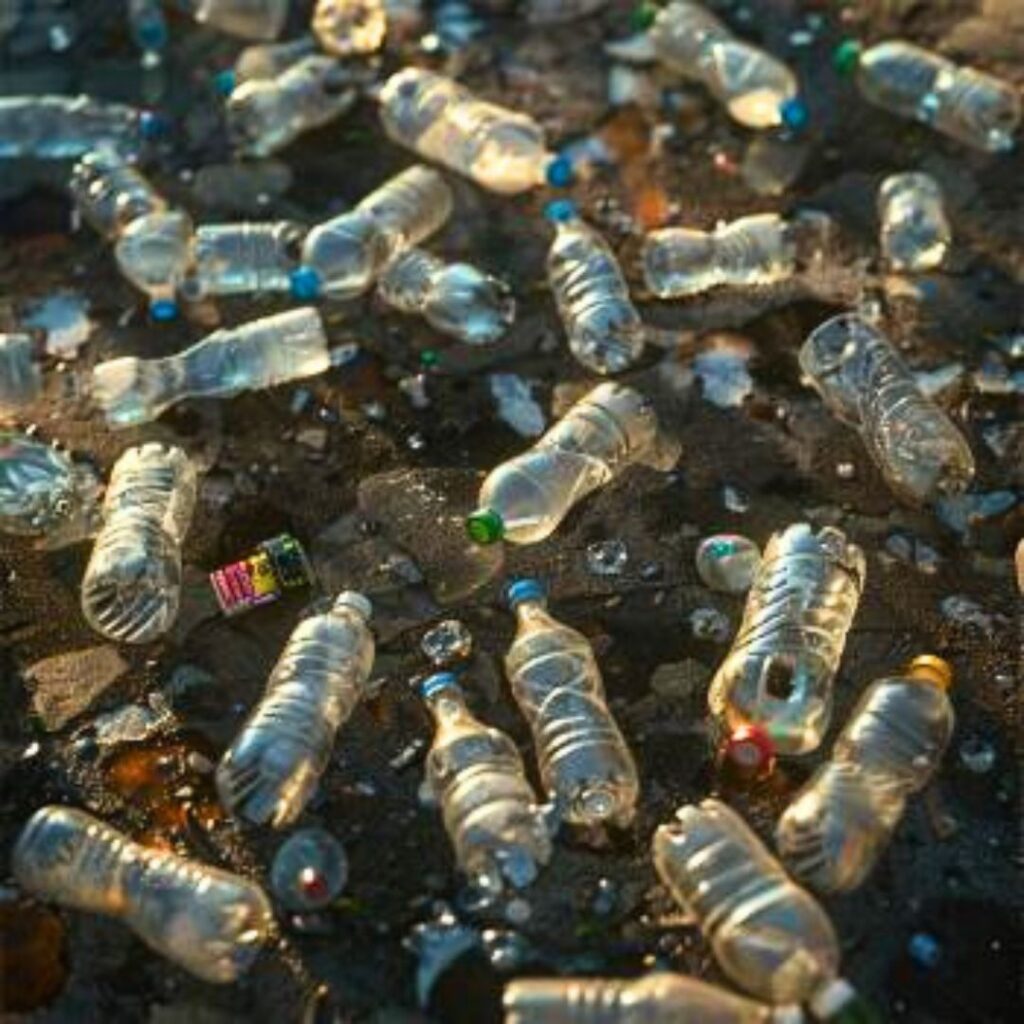
Plastic bottles are a convenient way to carry and store liquids, but they can pose significant health risks due to the chemicals they contain. Here’s how plastic bottles can negatively impact your health:
1. Bisphenol A (BPA) Exposure
- What It Is: BPA is a chemical used in the production of certain plastics, including some water bottles. It mimics estrogen and can interfere with hormone levels.
- Health Risks: BPA exposure has been linked to various health issues, including reproductive disorders, heart disease, diabetes, and developmental problems in children. Even low levels of BPA can disrupt the endocrine system.
2. Release of Microplastics
- What It Is: Over time, plastic bottles can degrade, especially when exposed to heat, sunlight, or rough handling. This degradation can release tiny plastic particles, known as microplastics, into the water or other liquids stored in the bottle.
- Health Risks: Microplastics can be ingested, and while the full extent of their impact is still being studied, they are believed to contribute to inflammation, and potential toxicity, and may affect organs like the liver and kidneys.
3. Phthalates Contamination
- What It Is: Phthalates are chemicals used to make plastics more flexible and durable. They can leach into liquids, especially when bottles are reused or exposed to heat.
- Health Risks: Phthalates have been associated with hormone disruption, reproductive issues, and increased risk of asthma and allergies. They may also impact the development of children.
4. Increased Risk from Reusing Bottles
- What It Is: Reusing plastic bottles can cause wear and tear, leading to the breakdown of the plastic and the release of harmful chemicals like BPA, phthalates, and microplastics.
- Health Risks: The more a plastic bottle is reused, the greater the risk of chemical leaching. Bacteria can also build up in the bottle’s crevices, potentially leading to infections if not properly cleaned.
5. Leaching of Antimony
- What It Is: Antimony is a heavy metal used in the production of polyethylene terephthalate (PET) bottles. Over time, especially when bottles are stored in warm conditions, antimony can leach into the liquid.
- Health Risks: High levels of antimony exposure can cause nausea, vomiting, and diarrhea, and long-term exposure has been linked to respiratory and cardiovascular issues.
6. Heat and Sunlight Exposure
- What It Is: When plastic bottles are exposed to heat or sunlight, they can release harmful chemicals more rapidly. Leaving plastic water bottles in a hot car or under direct sunlight increases the risk of chemical leaching.
- Health Risks: Drinking water from bottles exposed to heat may lead to increased ingestion of harmful chemicals like BPA, phthalates, and antimony, all of which have been linked to serious health concerns.
Tips to Reduce Health Risks from Plastic Bottles:
- Use BPA-Free Bottles: Look for bottles labeled as BPA-free. However, be aware that BPA substitutes like BPS may also pose health risks.
- Avoid Reusing Single-Use Bottles: Single-use plastic bottles are not designed for reuse. Opt for stainless steel or glass bottles instead.
- Keep Bottles Cool: Store plastic bottles in a cool, shaded place, and avoid leaving them in hot environments like cars or sunny windowsills.
- Recycle Properly: Dispose of plastic bottles responsibly to minimize environmental impact and reduce your exposure to chemicals from degraded plastics.
By being aware of the potential health risks associated with plastic bottles and taking steps to minimize exposure, you can protect your health and contribute to a safer environment. 🌱🌍